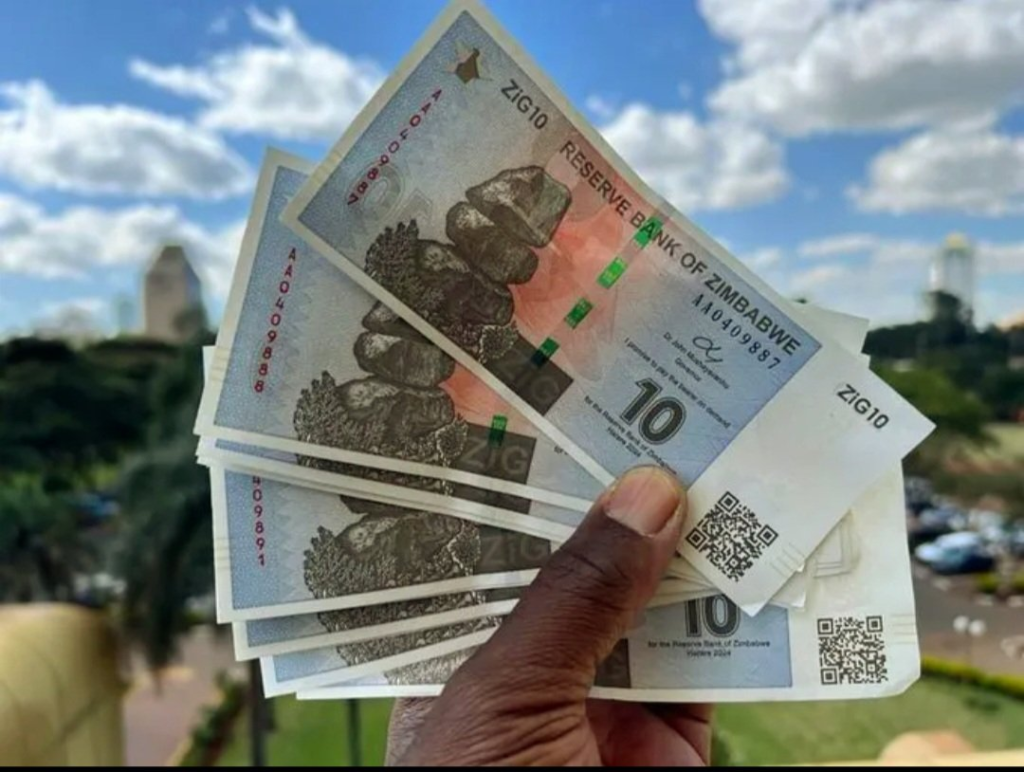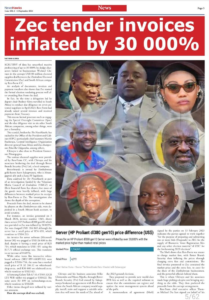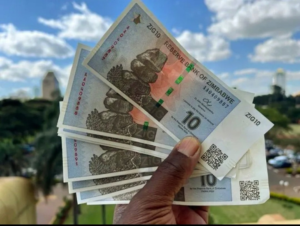ZIMBABWE’S ZiG CURRENCY SPARKS ECONOMIC TURMOIL, THREATENING RETAILERS

Zimbabwe’s new currency, called ZiG, was introduced with the promise of being backed by gold and enough foreign currency reserves. However, it has instead caused more problems for the economy. Retailers, who are a key part of the economy, are now worried that they may have to close their businesses due to the problems caused by ZiG. The economy is struggling with instability, high inflation, and rising interest rates.
One of the biggest problems is the difference in exchange rates. Officially, 1 US dollar is equal to 13.8 ZiG, but on the parallel market, 1 US dollar is worth 30 ZiG. This means that businesses using the official rate are at a big disadvantage compared to those who use the unofficial rate. Since its introduction on April 5th, ZiG has lost almost half of its value, dropping by 49%. Even though official inflation is said to be around 3.7%, independent economists argue that the real inflation rate is over 800%, the highest in the world.
Money supply, which refers to how much money is available in the economy, is increasing by around 283% every year. But the problem is that people are not spending much money, which shows a lack of economic activity. Normally, when money is moving quickly through the economy, it means that there is a lot of business happening, but this is not the case in Zimbabwe right now. The government tried to limit the amount of money in circulation to protect the value of ZiG, but it didn’t work well because people were not spending.
ZiG banknotes are also in short supply, so the US dollar is still widely used. President Emmerson Mnangagwa has said that he plans to phase out the US dollar by 2030, meaning Zimbabwe will only use ZiG. However, if the currency keeps losing value like this, it may end up failing, just like the six other versions of Zimbabwean currencies before it. In response to the crisis, Mnangagwa has extended the use of foreign currencies for buying goods and services until December 2030.
The country’s central bank, the Reserve Bank of Zimbabwe (RBZ), is led by John Mushayavanhu, who has said he would not print more money. But now, he has been forced to do so. The RBZ is trying to manage the economy, the currency, and the exchange rate, but their efforts are not working as planned. Instead, the economy is facing more instability, and businesses are struggling to survive.
Retailers, in particular, are feeling the pressure. They have to use the official exchange rate, which makes their products much more expensive than those sold in the informal market, where people use the parallel exchange rate. This has led to distortions in the market and has increased inflation even more. Retailers are now calling on the government to do something about the situation before their businesses are forced to close.
While the government claims that ZiG has helped stabilize the currency and exchange rates, businesses and the market say otherwise. They argue that ZiG has only made things worse. Retailers, including big companies like OK Zimbabwe, PicknPay, and SPAR, are worried about the future of the formal retail sector. They fear that if the government doesn’t take action, many companies could go out of business.
Analysts have said that ZiG was never going to be the solution to Zimbabwe’s economic problems without addressing the underlying issues. They point to politics and leadership as the root causes of the economic troubles. Zimbabwe needs structural reforms to improve the business environment, reduce corruption, and strengthen economic governance. Without these changes, the country will continue to face economic difficulties.
International support is also needed to help resolve Zimbabwe’s debt and gain access to external financing. But right now, the government has no significant external funding sources. They are relying on private loans, which come with high interest rates. The country’s attempts to re-engage with international creditors have not been successful, as key players like the United States have pulled back from talks. This leaves Zimbabwe in a tough position, facing an uncertain future.


